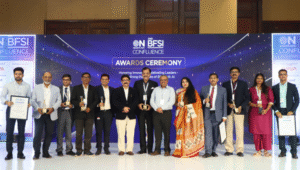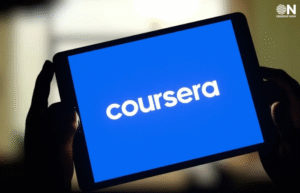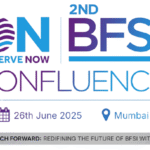UNICEF Praises Kerala’s Little KITEs as a Leading EdTech Initiative

UNICEF has praised Kerala’s Little KITE programme as a global model for education, emphasizing its impact on 2,174 high schools and its role in promoting future-ready skills and gender equality in STEM. The study, “Empowering Adolescents with Future-Ready Skills – The Inspiring Story of Little KITEs,” was released on Saturday.
The report was received by Rani George IAS, Principal Secretary of the General Education Department, from Pramila Manoharan, UNICEF India’s educational specialist, in the presence of Chief Minister Pinarayi Vijayan and General Education Minister V Sivankutty.
Key Highlights of the Study:
Impact and Reach: Implemented by Kerala Infrastructure and Technology for Education (KITE), the Little KITEs programme is the largest ICT network of students in India. It has significantly impacted high schools across Kerala, fostering creativity, problem-solving skills, and bridging the gender gap in STEM education by encouraging girls’ participation.
Economic Benefits: The programme’s use of Free and Open-Source Software (FOSS) has saved Kerala Rs 3000 crore, demonstrating the economic benefits of opting for non-proprietary software. The report also noted that Finland has expressed interest in replicating the Little KITEs model.
Global and National Alignment: The initiative aligns with global and national efforts to develop future-ready skills in line with the United Nations Global Framework. The study offered 10 data-driven recommendations, emphasizing the scalability and adaptability of Kerala’s KITE-led EdTech model.
Community Involvement and Expansion: The UNICEF study recommended expanding the Little KITEs programme to all high schools and higher secondary levels in Kerala. It also suggested involving local bodies and communities to increase investment in public education.
Public School Attraction: The success of Little KITEs has attracted students from private schools to enroll in public schools, further validating the programme’s effectiveness and appeal.
Endorsements and Future Plans:
Dr. Akila Radhakrishnan, Social Policy Specialist with UNICEF India, emphasized that the Little KITEs programme is a unique FOSS-based EdTech intervention. “UNICEF is committed to sharing the success stories of Little KITEs with other states and countries,” she said.
K Anvar Sadath, CEO of KITE, expressed the organization’s eagerness to partner with UNICEF and other entities to expand the reach of Little KITE to new regions. “We are also looking for support from the FOSS community to develop AI capabilities,” Sadath added.
The study’s publication on the UNICEF website underscores the global significance of Kerala’s innovative approach to digital education, marking a milestone in the state’s journey towards becoming a knowledge society and economy.
As the study concludes, “Little KITEs is a well-sown seed in the fertile ground of EdTech in Kerala. It has grown rapidly, promoting a wide range of students across the public school system to explore creativity and problem-solving, connecting school to life in innovative ways, and architecting safe digital futures.”
This recognition by UNICEF not only highlights the success of Kerala’s digital education initiatives but also sets a benchmark for other regions to follow, reaffirming Kerala’s position as a leader in educational innovation.
















